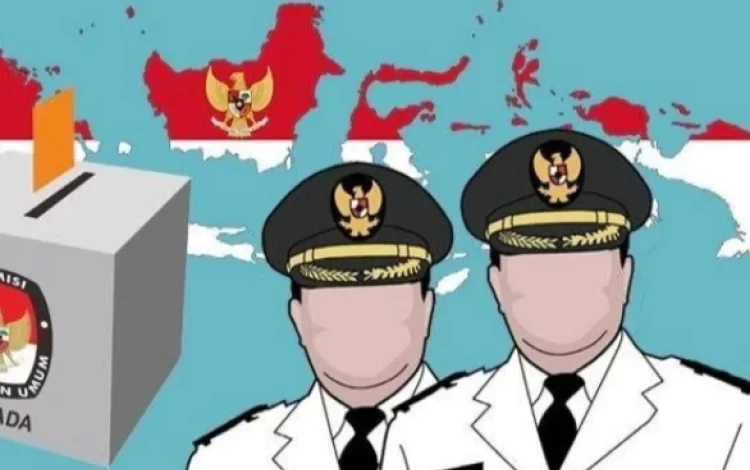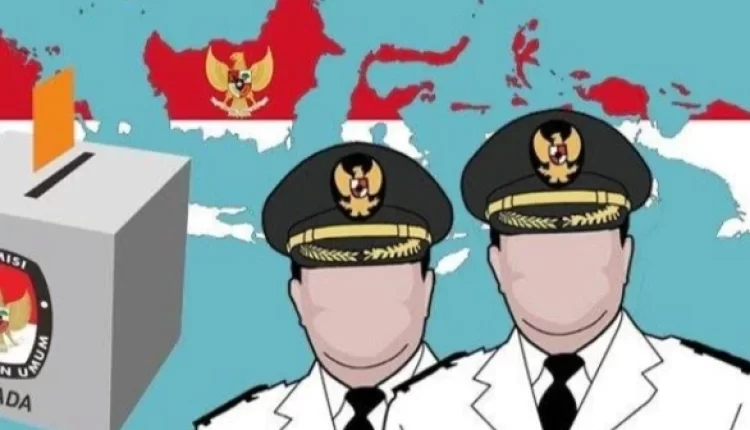Political Reconciliation is the Key to Harmony Post-Regional Elections

By: Sadena Ayu Parmesta )*
After the implementation of the regional head elections (Pilkada) is completed, the role of political reconciliation becomes very important in maintaining social harmony. Although elections are an integral part of a healthy democracy, often the dynamics of post-election politics can trigger tension, even division among the community.
Therefore, steps to re-establish the bonds of brotherhood and maintain social stability are important tasks for all elements of the nation, including the government, elected candidates, the media, and society.
Communication lecturer at UIN Sjech M. Djamil Djambek Bukittinggi, Tomi Hendra, stated that reconciliatory communication is one of the main keys to overcoming the polarization that often arises after the Pilkada. In this case, he emphasized the importance of an open attitude from all parties, both winners and losers, to uphold sportsmanship.
Not only emphasizing the importance of an open attitude, Tomi also emphasized the need for candidates to work together for the common good. Thus, post-election is not a time to sharpen differences, but to strengthen unity by upholding calm communication.
One way suggested by Tomi is to put forward public statements supporting peace and reconciliation. In this context, the media also has a very important role.
According to him, the media must avoid prolonging the narrative of conflict and instead, must actively voice messages of peace, togetherness, and guide the community to understand the importance of unity. In this case, the media is not only a channel of information, but also a pillar in reducing political tensions that may arise.
Empathy is also key to effective communication in the post-election period. Elected leaders need to show empathy for all groups in society, including those who did not vote for them.
This empathy will help create a conducive atmosphere and strengthen public trust in the new government. Leaders who are able to understand the feelings and needs of various groups will create stronger togetherness and accelerate the development process.
In addition, maintaining communication ethics is also very important in reducing tension. Every individual, especially public figures, needs to maintain polite speech and avoid spreading information that could trigger further conflict. Hoaxes and slander that often circulate on social media will only worsen the situation.
Therefore, it is important for the losing candidate to demonstrate political maturity and not to trigger controversies that could damage social stability. Meanwhile, the winning candidate also needs to avoid attitudes that appear arrogant or demeaning to their political opponents.
Meanwhile, Mura Police Chief, AKBP Andi Supriadi, emphasized that the Pilkada is not only a political competition, but also a test of community solidarity. Post-Pilkada, reconciliation is a strategic step that must be taken to restore relations that were fragmented during the Pilkada process.
Andi reminded, although the security forces have worked hard to ensure the smooth running of the Pilkada, reconciliation remains a shared responsibility. The community needs to strengthen unity again in order to create a stable situation.
In addition to the role of the government and security forces, the community must also be actively involved in maintaining social harmony. The chairman of BEM Unindra PGRI Jakarta, Abdul Wahid Khaliki, said that tensions due to differences in political choices in the Pilkada should subside after the election process is complete.
Wahid emphasized that Pilkada is a democratic event that should not be a reason for division or disintegration. All parties are expected to prioritize unity and harmony, not to prioritize differences that will only harm each other.
On the other hand, it is important to use social media wisely to strengthen the message of peace and unity. After the regional elections, social media often becomes a place where political conflicts continue.
Social media can be used to spread positive messages that ease tensions. Digital campaigns and education about the importance of critical thinking about content circulating on social media are strategies that can be taken to prevent the spread of information that damages social harmony.
Open and comprehensive dialogue is also one of the solutions to overcome the conflicts that arise after the Pilkada. One of the important steps in reconciliation is dialogue that allows all parties to listen to each other and find solutions together.
Elected leaders must be ready to mediate and build a safe and constructive communication space. Dialogue based on empathy and a willingness to work together will be a bridge that connects differences and strengthens unity in society.
By prioritizing political reconciliation, empathy, communication ethics, and open dialogue, post-election society can unite to achieve common goals, namely sustainable development and shared prosperity. Prioritizing unity over political differences will help strengthen democracy and accelerate regional progress.
Thus, post-election reconciliation is not only about resolving differences, but also about rebuilding stronger bridges of trust and solidarity among communities.
All parties, be they leaders, media, or society, have a big role in creating a peaceful and conducive atmosphere for mutual progress. The success of this reconciliation will be a solid foundation to face future development challenges, as well as strengthen the foundation of a healthy democracy in Indonesia.
)* Contributor to the Reading Window Institute
